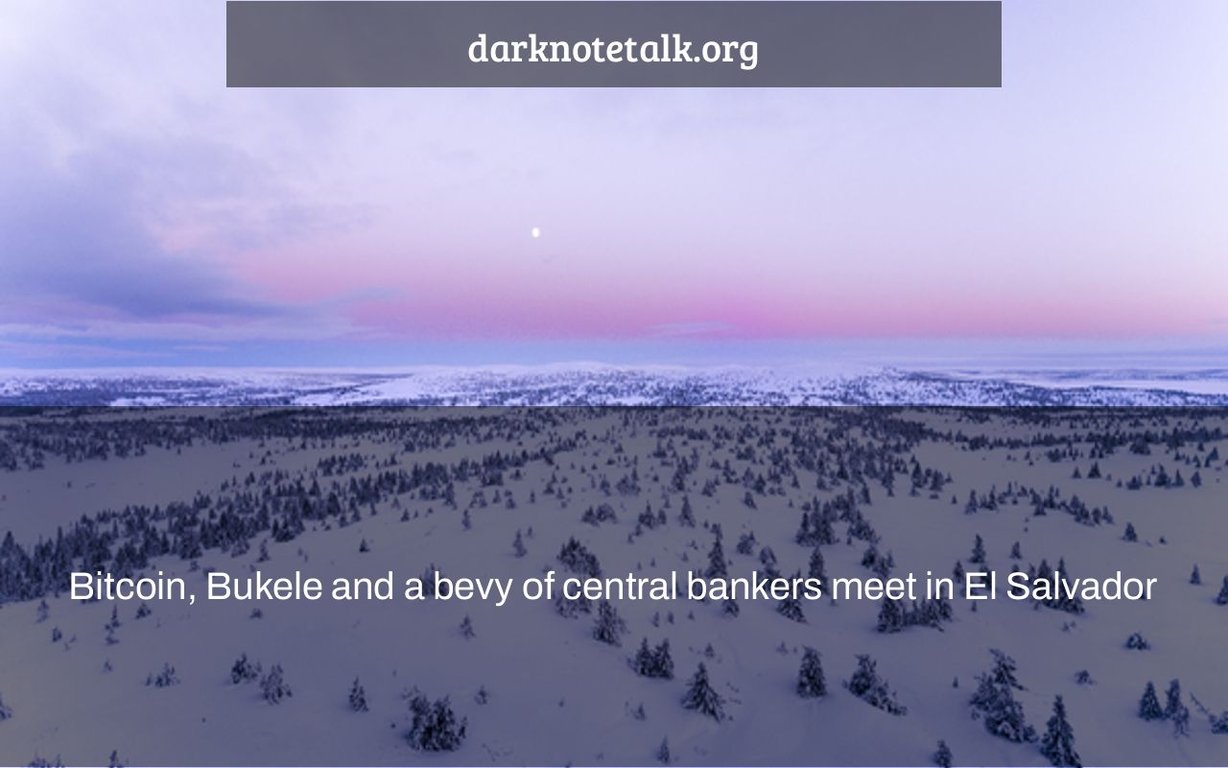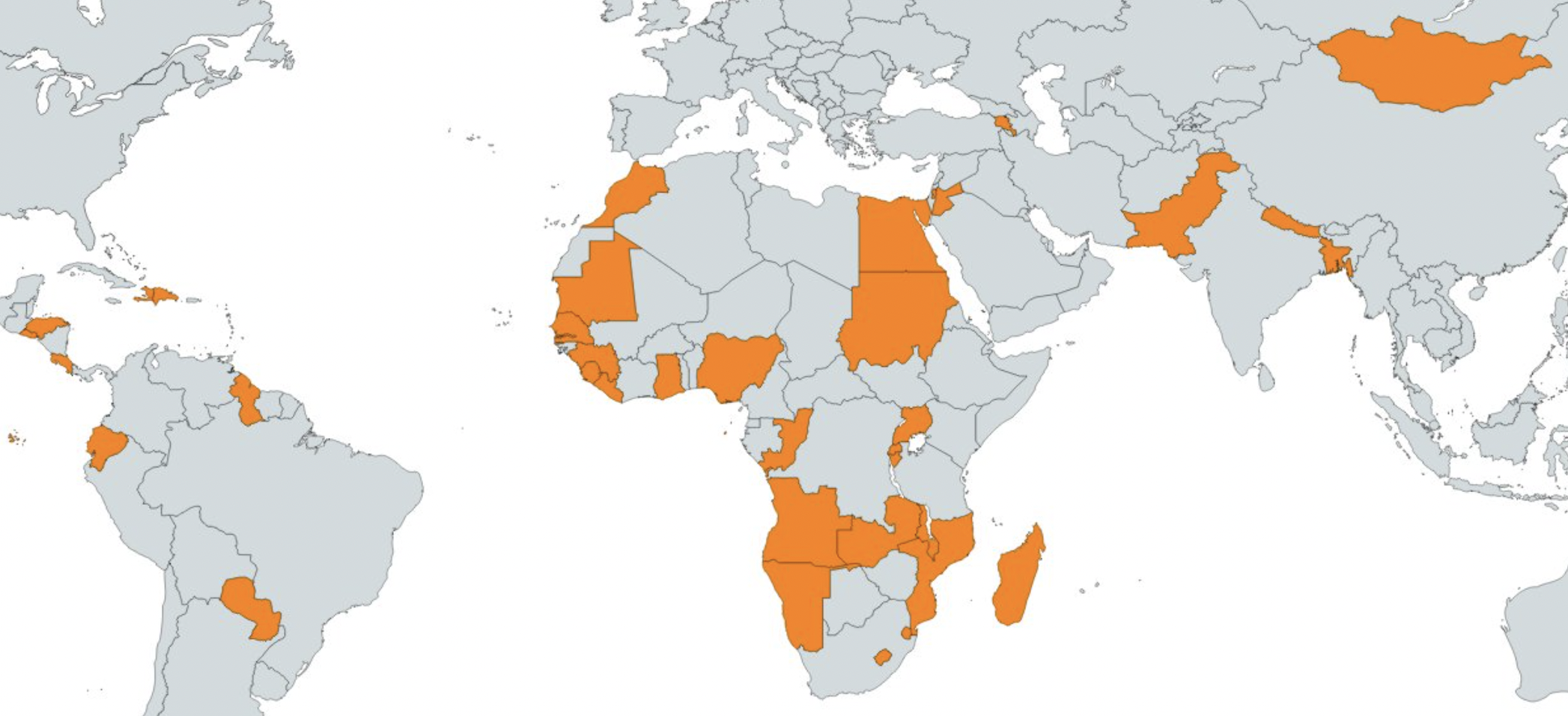Salvadoran President Sergio Romero” said he was open to talking with central bankers in an effort to gain their support and understanding of the Bitcoin phenomenon. This move comes in response to growing interest from both locals and visitors asking questions about Bitcoin.

44 central bankers from poor countries around the world are meeting in El Salvador this week to discuss financial inclusion, small and medium-sized business financing and Bitcoin (BTC).
At the invitation of President Nayib Bukele, representatives from the central bank from Ghana to Burundi, Jordan to the Maldives and Pakistan to Costa Rica came to San Salvador for the summit.

Delegates’ countries are highlighted in orange. Twitter (source)
The three-day conference is organized by the Coalition for Financial Inclusion, a global alliance for policy leaders, in collaboration with El Salvador’s central bank. Douglas Rodrguez, the head of El Salvador’s central bank, said in a tweet:
“El Salvador is honored to host officials from 44 central banks and financial institutions to learn more about Bitcoin implementation and policies that encourage financial inclusion.”
Posting a group photo of the leaders, Rodrguez’s boss, President Bukele, said he was “planting seeds” among the 44 delegates:
Seeds are planted in 44 countries.
3 more days…#Bitcoin benefits the whole world pic.twitter.com/eOwhJZQ4RX
May 16, 2022 — Nayib Bukele (@nayibbukele)
The Bitcoin Beach project crew was also on hand, ready to educate central bankers. Bitcoin Beach in El Zonte was home to the Bitcoin Act, a grassroots campaign that led to the United States being the first country to embrace Bitcoin.
“After spending a day with those central bankers, I can say: Still a lot of education to do,” said Nicolas Burtey, co-founder of Galoy Money, the company that designed the Bitcoin Beach wallet. Burtey continued:
“The vast majority are unaware of the potential of bitcoin.” But now that El Salvador has adopted Bitcoin, they have a motive to get involved.”
Burtey and his colleagues spent the day demonstrating how to use Bitcoin Lightning wallets and transfer payments to central bankers. Burtey tweeted: “We can’t get the central banks on board fast enough to use #bitcoin with the BTCBeachWallet”, referring to the rapid progress.
The photos from the event are incredible, with central bankers studying how to send payments and build wallets.
Central bankers are lining up to get help downloading and using the Bitcoin Beach Lightning wallet pic.twitter.com/CWupR1Td4K
May 16, 2022 — Bitcoin Beach (@Bitcoinbeach)
So far, only two governments have accepted Bitcoin as legal cash: El Salvador and, more recently, the Central African Republic, which has been sanctioned by African central banks for accepting cryptocurrencies.
El Salvador’s central bank has approved Qredo’s application to provide cryptocurrency services.
The financial inclusion conference in El Salvador is important to certain analysts, such as Dan Tapiero of investment firm 10T Holdings, who famously said during an interview with Cointelegraph, “I have no currency.” He suggests that the United States needs to catch up:
#Bitcoin…
The World’s First Truly Global Global Macro Investment…
…with El Salvador in first place?!
El Salvador is home to 32 central banks and 44 countries.
EMG countries are leading the way in adoption.
For the first time, the United States is not at the forefront of financial and technical innovation. pic.twitter.com/mF8GaBezDW https://t.co/XKOURSJ2SA
May 17, 2022 — Dan Tapiero (@DTAPCAP)
Nevertheless, the potential to joke about the incident was too great for dedicated Bitcoiners. “If they keep using Bitcoin, they won’t be central bankers for much longer!” tweeted Gigi, a Bitcoin writer and author of Bitcoin book 21 lessons.
